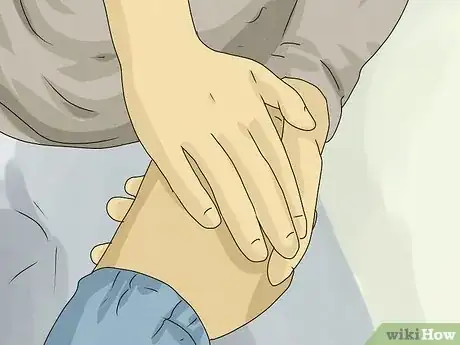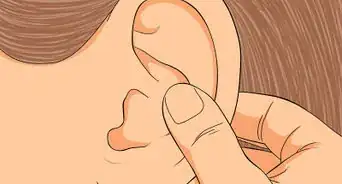This article was co-authored by wikiHow staff writer, Nihal Shetty. Nihal Shetty is a Writer and Editing Fellow at wikiHow who splits his time between Michigan and Mexico City. Before his role at wikiHow, he was an instructor of Russian literature at the University of California, Berkeley. Nihal received a BA in Comparative Literature from Columbia University and an MA in Russian at Berkeley.
There are 7 references cited in this article, which can be found at the bottom of the page.
This article has been viewed 7,282 times.
Learn more...
As many developed nations come to terms with an aging population, the work of a death doula will be more important than ever. Death is a deeply meaningful and sacred process for everyone involved, and as a doula, your job will help guide the dying and their loved ones through this transition. If you’re interested in becoming a death doula (also known as an end-of-life doula), we’re here to help. We’ve put together this comprehensive guide with everything you need to know on how to become a death doula.
Steps
Building a Career as a Death or End-of-Life Doula
-
1Volunteer with local hospices to explore your interests. Before signing up for a death doula training program, it’s a good idea to see if working in the end-of-life care industry is something that’s right for you. Many hospices offer volunteer programs, even ones specifically for prospective doulas, that will give you practice working with terminally ill people and understanding their needs.[6]
-
2Take a training or certification program. It’s highly recommended that you take a training program before becoming a doula. Many programs are fully online, which makes them far more accessible. These programs will give you a foundation of skills that will serve you well during your work.[7]
-
3Look for job opportunities in your area. Death doulas often work with hospices, hospitals, retirement and nursing homes. Other doulas prefer to start their own business, and get referrals from doctors, funeral homes, grief counselors, and even attorneys. Make calls to local organizations working in end-of-life care to see if there are openings for a doula on their staff, or introduce yourself to let them know you’re offering your services to interested clients.[8]
- Depending on your interests, you may also be able to work with clients remotely. Doulas who specialize in end-of-life paperwork, legacy work, and vigil services may be able to perform their roles over video calls.
-
4Educate others on your services. Since many people are unaware of what an end-of-life doula does, an important part of your job will be to explain how you can help them or their loved ones when dealing with death. Public education about the role of doulas doesn’t just help others understand that they have this resource available to them—it’s also a good way to advertise your own work.[9]
- Many doulas use the Internet to meet new clients and explain how their role works. Try expanding your online presence by building your own website.
-
5Connect with other doulas to build a network. When you’re dealing with the very particular emotional challenges of this kind of work, it’s really helpful to be able to lean on the expertise and companionship of other doulas. Consider joining the national doula organization in your country, which can connect you to other doulas and resources for your work.[10]
- Once you’ve become an experienced doula, it’s a great idea to mentor others who may be interested in pursuing the same path. Building the next generation of doulas can make a huge difference in the lives and deaths of many.
References
- ↑ https://inelda.org/about-doulas/what-is-a-doula/
- ↑ https://inelda.org/about-doulas/what-is-a-doula/
- ↑ https://inelda.org/about-doulas/what-is-a-doula/
- ↑ https://www.sbs.com.au/topics/voices/culture/article/2020/08/03/i-am-training-become-death-doula
- ↑ https://endoflifedoulaassociation.org/become-a-doula/
- ↑ https://hospicenews.com/2019/09/03/hospices-engage-with-death-doulas-to-support-patients%EF%BB%BF/
- ↑ https://endoflifedoulaassociation.org/become-a-doula/
- ↑ https://www.internationaldoulalifemovement.com/become-end-of-life-doula-find-forever-career/
- ↑ https://www.aarp.org/caregiving/home-care/info-2018/end-of-life-doulas.html






































































